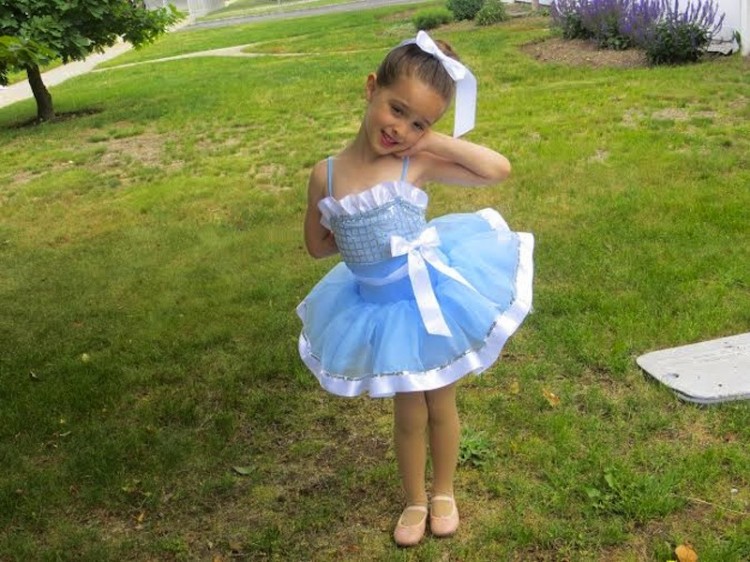Sensory processing (sometimes called "sensory integration" or SI) is a term that refers to the way the nervous system receives messages from the senses and turns them into appropriate motor and behavioral responses. Whether you are biting into a hamburger, riding a bicycle, or reading a book, your successful completion of the activity requires processing sensation or "sensory integration."
Sensory Processing Disorder (SPD, formerly known as "sensory integration dysfunction") is a condition that exists when sensory signals don't get organized into appropriate responses. Pioneering occupational therapist and neuroscientist A. Jean Ayres, PhD, likened SPD to a neurological "traffic jam" that prevents certain parts of the brain from receiving the information needed to interpret sensory information correctly. A person with SPD finds it difficult to process and act upon information received through the senses, which creates challenges in performing countless everyday tasks. Motor clumsiness, behavioral problems, anxiety, depression, school failure, and other impacts may result if the disorder is not treated effectively.
One study (
Ahn, Miller, Milberger, McIntosh, 2004) shows that at least 1 in 20 children’s daily life is affected by SPD. Another research study by the Sensory Processing Disorder Scientific Work Group (
Ben-Sasson, Carter, Briggs-Gowen, 2009) suggests that 1 in every 6 children experiences sensory symptoms that may be significant enough to affect aspects of everyday life functions. Symptoms of Sensory Processing Disorder, like those of most disorders, occur within a broad spectrum of severity. While most of us have occasional difficulties processing sensory information, for children and adults with SPD, these difficulties are chronic, and they disrupt everyday life.
What Sensory Processing Disorder looks like
Sensory Processing Disorder can affect people in only one sense–for example, just touch or just sight or just movement–or in multiple senses. One person with SPD may over-respond to sensation and find clothing, physical contact, light, sound, food, or other sensory input to be unbearable. Another might under-respond and show little or no reaction to stimulation, even pain or extreme hot and cold. In children whose sensory processing of messages from the muscles and joints is impaired, posture and motor skills can be affected. These are the "floppy babies" who worry new parents and the kids who get called "klutz" and "spaz" on the playground. Still other children exhibit an appetite for sensation that is in perpetual overdrive. These kids often are misdiagnosed - and inappropriately medicated - for ADHD.
Sensory Processing Disorder is most commonly diagnosed in children, but people who reach adulthood without treatment also experience symptoms and continue to be affected by their inability to accurately and appropriately interpret sensory messages.
These "sensational adults" may have difficulty performing routines and activities involved in work, close relationships, and recreation. Because adults with SPD have struggled for most of their lives, they may also experience depression, underachievement, social isolation, and/or other secondary effects.
Sadly, misdiagnosis is common because many health care professionals are not trained to recognize sensory issues. The Sensory Processing Disorder Foundation is dedicated to researching these issues, educating the public and professionals about their symptoms and treatment, and advocating for those who live with Sensory Processing Disorder and sensory challenges associated with other conditions.
The causes of Sensory Processing Disorder
What causes Sensory Processing Disorder is a pressing question for every parent of a child with SPD. Many worry that they are somehow to blame for their child's sensory issues. "Is it something I did?" parents want to know.
The causes of SPD are among the subjects that researchers at Sensory Processing Disorder Foundation and their collaborators elsewhere have been studying. Preliminary research suggests that SPD is often inherited. If so, the causes of SPD are coded into the child's genetic material. Prenatal and birth complications have also been implicated, and environmental factors may be involved.
Of course, as with any developmental and/or behavioral disorder, the causes of SPD are likely to be the result of factors that are both genetic and environmental. Only with more research will it be possible to identify the role of each.
A summary of research into causation and prevalence is contained in Sensational Kids: Hope and Help for Children With Sensory Processing Disorder (New York: Perigee, 2006).
Emotional and other impacts of Sensory Processing Disorder
Children with Sensory Processing Disorder often have problems with motor skills and other abilities needed for school success and childhood accomplishments. As a result, they often become socially isolated and suffer from low self-esteem and other social/emotional issues.
These difficulties put children with SPD at high risk for many emotional, social, and educational problems, including the inability to make friends or be a part of a group, poor self-concept, academic failure, and being labeled clumsy, uncooperative, belligerent, disruptive, or "out of control." Anxiety, depression, aggression, or other behavior problems can follow. Parents may be blamed for their children's behavior by people who are unaware of the child's "hidden handicap."
Effective treatment for Sensory Processing Disorder is available, but far too many children with sensory symptoms are misdiagnosed and not properly treated. Untreated SPD that persists into adulthood can affect an individual's ability to succeed in marriage, work, and social environments.
How Sensory Processing Disorder is treated
Most children with Sensory Processing Disorder (SPD)are just as intelligent as their peers. Many are intellectually gifted. Their brains are simply wired differently. They need to be taught in ways that are adapted to how they process information, and they need leisure activities that suit their own sensory processing needs.
Once children with Sensory Processing Disorder have been accurately diagnosed, they benefit from a treatment program of occupational therapy (OT) with a sensory integration (SI) approach. When appropriate and applied by a well-trained clinician, listening therapy (such as Integrated Listening Systems) or other complementary therapies may be combined effectively with OT-SI.
Occupational therapy with a sensory integration approach typically takes place in a sensory-rich environment sometimes called the "OT gym." During OT sessions, the therapist guides the child through fun activities that are subtly structured so the child is constantly challenged but always successful.
The goal of Occupational Therapy is to foster appropriate responses to sensation in an active, meaningful, and fun way so the child is able to behave in a more functional manner. Over time, the appropriate responses generalize to the environment beyond the clinic including home, school, and the larger community. Effective occupational therapy thus enables children with SPD to take part in the normal activities of childhood, such as playing with friends, enjoying school, eating, dressing, and sleeping.
Ideally, occupational therapy for SPD is family-centered. Parents are involved and work with the therapist to learn more about their child's sensory challenges and methods for engaging in therapeutic activities (sometimes called a "sensory diet)" at home and elsewhere. The child's therapist may provide ideas to teachers and others outside the family who interact regularly with the child. Families have the opportunity to communicate their own priorities for treatment.
Treatment for Sensory Processing Disorder helps parents and others who live and work with sensational children to understand that Sensory Processing Disorder is real, even though it is "hidden." With this assurance, they become better advocates for their child at school and within the community
*I copied all this info from the Sensory Processing Disorder Foundation website.




















